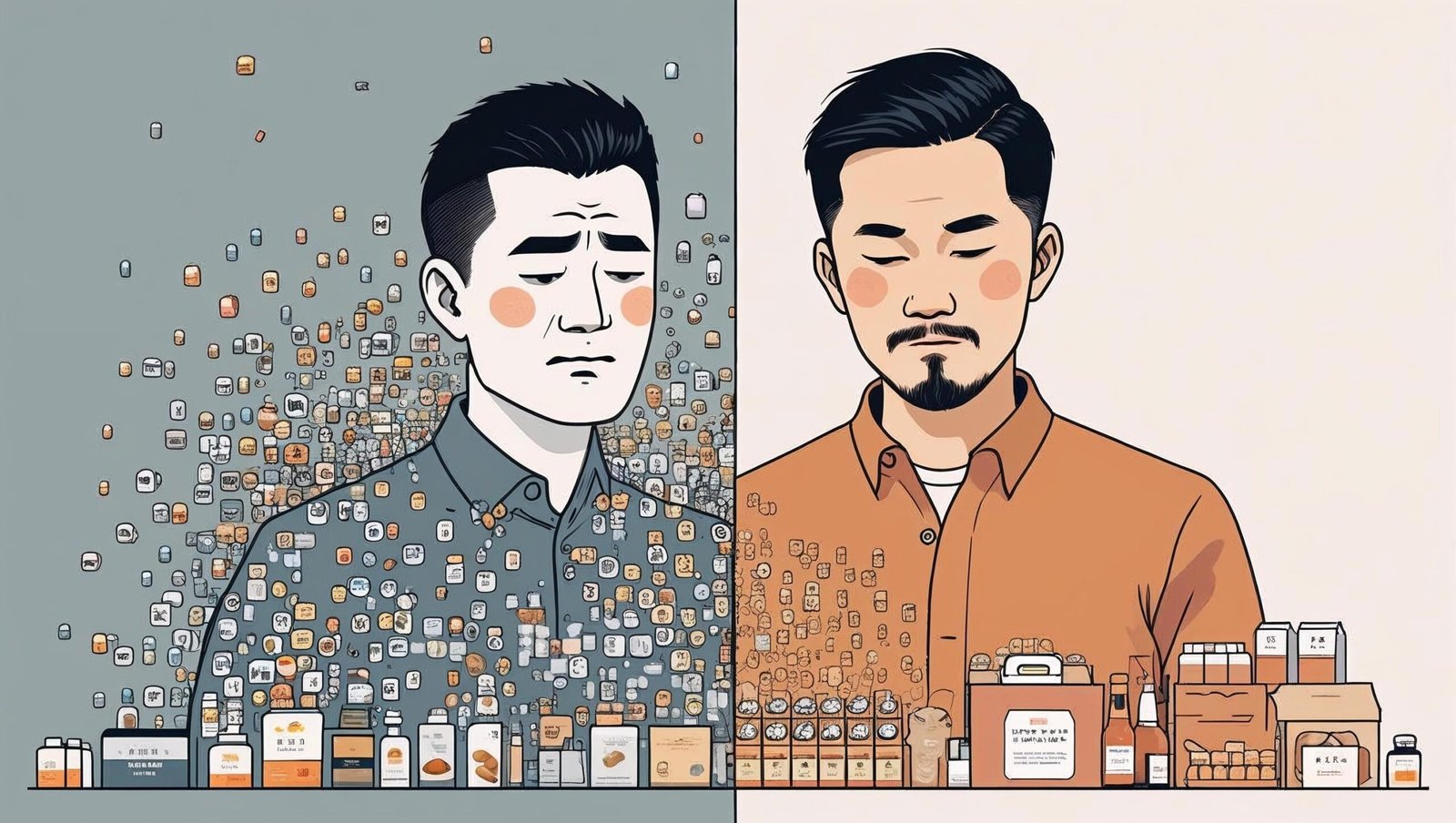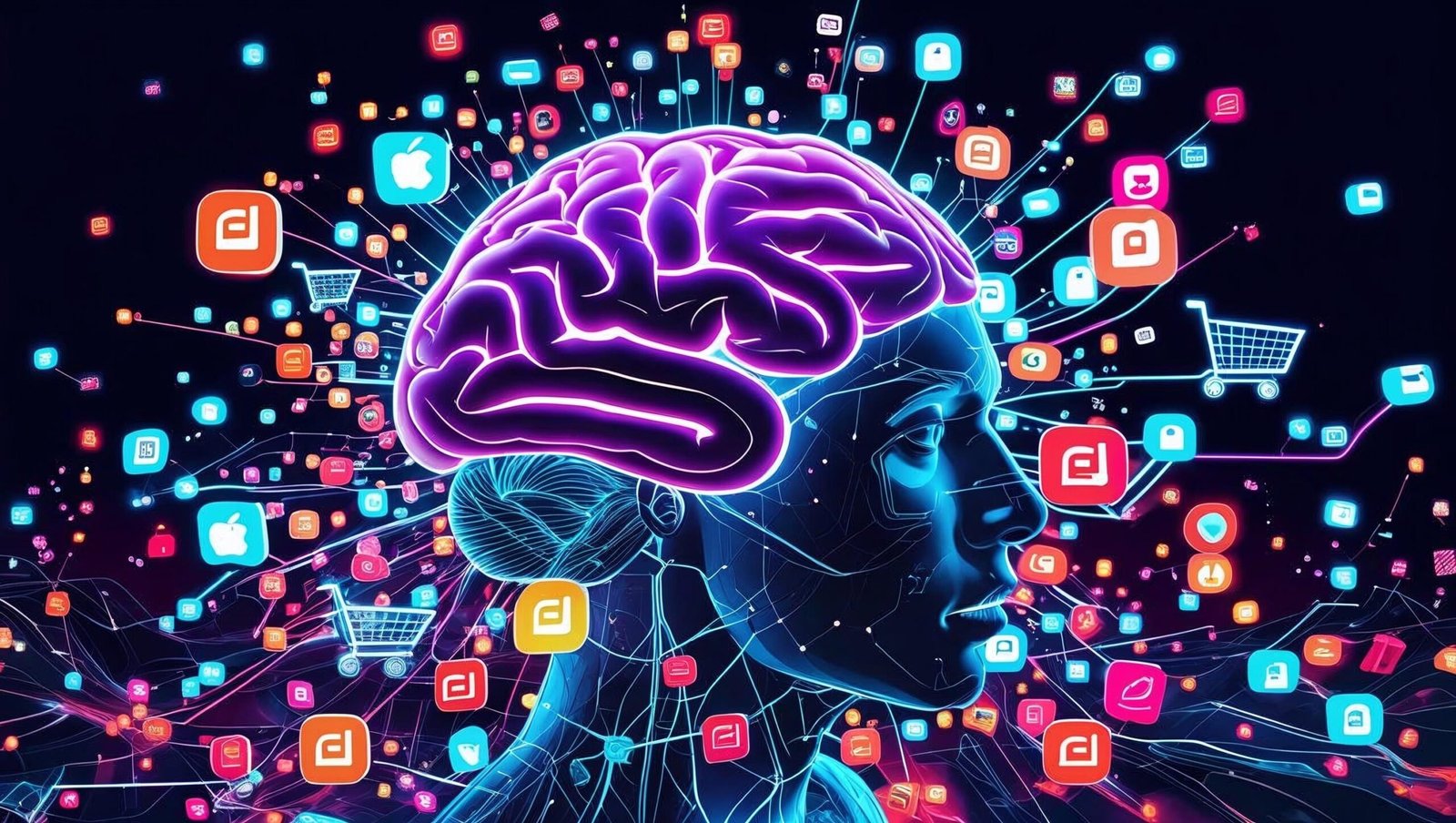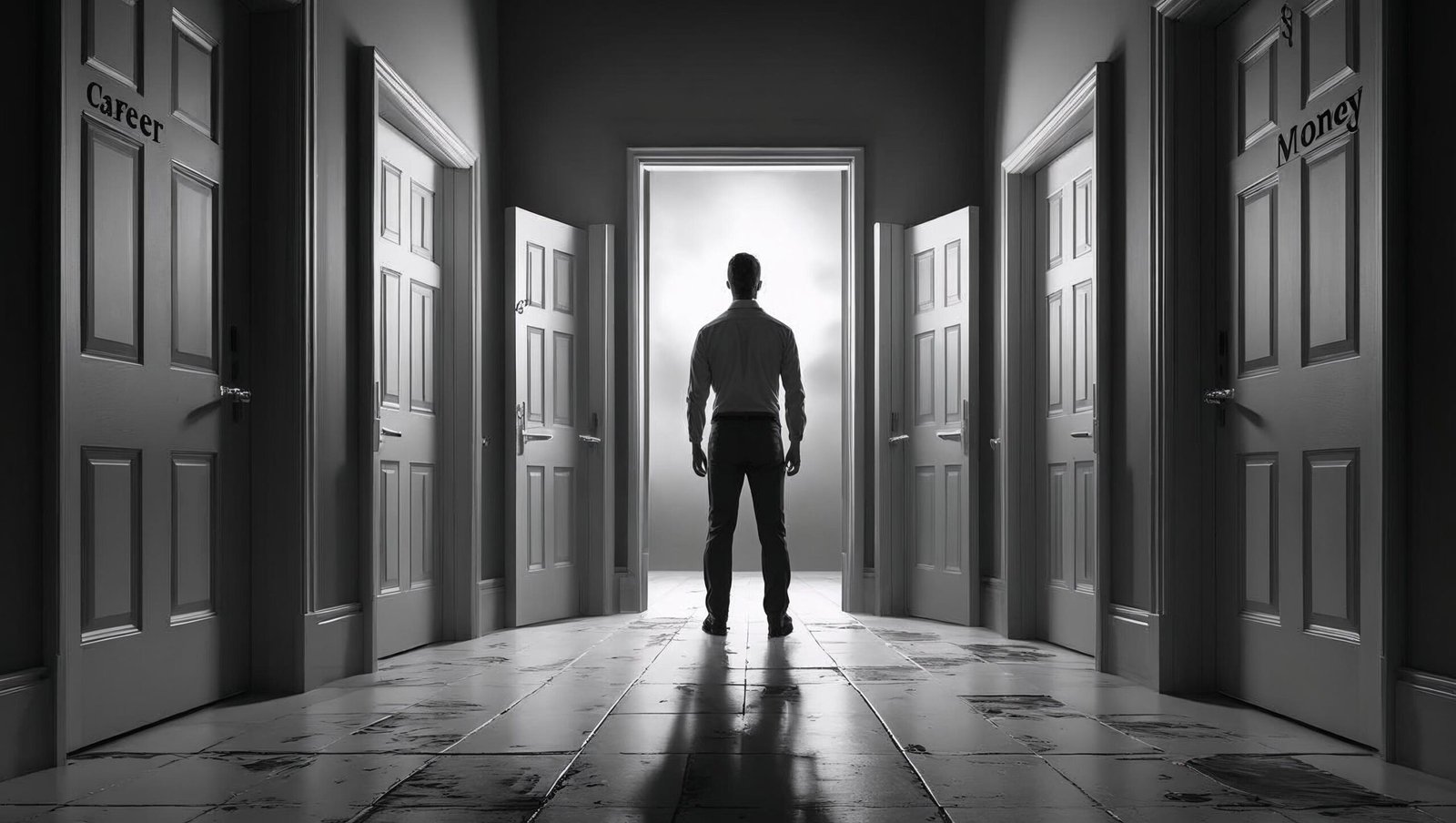The Paradox of Choice by Barry Schwartz: 9 Alarming Truths That Will Change Your Life
In an age of unlimited options, personal freedom, and digital abundance, we often believe that more choices mean a better life. Yet, The Paradox of Choice by Barry Schwartz paints a very different picture—one that is unsettling, enlightening, and necessary for anyone navigating modern decision-making. This deeply researched book uncovers the psychological consequences of excessive choices and how it undermines happiness rather than enhancing it.

Who Is Barry Schwartz?
Barry Schwartz is a renowned American psychologist and professor emeritus at Swarthmore College. He specializes in the intersection of psychology and economics. His TED Talks have garnered millions of views, where he brilliantly unpacks themes from The Paradox of Choice by Barry Schwartz, asserting that we are not more liberated by choice—we are paralyzed by it.
1. Too Much Freedom Is a Burden, Not a Blessing
The central thesis of The Paradox of Choice by Barry Schwartz is that an overabundance of choice doesn’t empower us—it burdens us. Instead of liberating people, infinite options generate anxiety, regret, and even paralysis.
For example, imagine standing in the cereal aisle with 64 varieties to pick from. What should be a simple act turns into a mental struggle—what if the other brand was healthier, cheaper, or tastier?
Schwartz challenges the sacred value of autonomy, arguing that in modern society, freedom has become synonymous with confusion.
2. Maximizers vs. Satisficers: The Key to Decision Fatigue
One of the most compelling frameworks in The Paradox of Choice by Barry Schwartz is the distinction between maximizers and satisficers.
-
Maximizers seek the best possible outcome. They evaluate all alternatives, obsess over possibilities, and are usually plagued with regret—even after making a good decision.
-
Satisficers look for a solution that is “good enough.” Once their criteria are met, they stop looking.
Ironically, maximizers often feel worse despite making better decisions. Schwartz suggests that being a satisficer may lead to greater contentment in life.
3. The Tyranny of Small Decisions
In The Paradox of Choice by Barry Schwartz, the author reveals how minor decisions—like choosing a toothpaste or phone case—consume disproportionate amounts of time and energy. When repeated daily, these micro-decisions exhaust our mental bandwidth, leaving less capacity for what truly matters.
This phenomenon is known as decision fatigue, and it has real-life consequences. Even high-level executives and world leaders limit their wardrobe choices (think Steve Jobs or Barack Obama) to reduce cognitive load.
4. More Choices, More Regret
Regret is an emotion intimately linked with decision-making, and The Paradox of Choice by Barry Schwartz dives deep into this torment. When presented with several options, the opportunity cost of not choosing the “best” one haunts us.
The book notes that regret doesn’t just follow bad decisions—it often follows any decision when alternatives were available. This can lead to anticipatory regret, making people reluctant to decide at all.

5. Adaptation and the Hedonic Treadmill
Schwartz discusses how we adapt to outcomes quicker than we expect. A new gadget, job, or car only brings fleeting joy before we return to our emotional baseline. The Paradox of Choice by Barry Schwartz highlights how excessive choice leads to hedonic adaptation, where happiness derived from a new decision rapidly fades, compelling us to seek more and more.
We are constantly running on a hedonic treadmill—seeking satisfaction through consumption and novelty—only to return to square one emotionally.
6. The Illusion of Control and the Pressure of Responsibility
When you have only two choices and make the wrong one, it’s easy to forgive yourself. But when 40 options are available, a poor outcome is internalized as a personal failure.
The Paradox of Choice by Barry Schwartz explains how abundant options shift blame inward, making people feel responsible for their dissatisfaction. This illusion of control creates undue psychological pressure and reduces resilience.
7. The Paradox Affects Every Domain of Life
Barry Schwartz applies his theory to multiple facets of daily life:
-
Relationships: Dating apps offer hundreds of profiles, yet commitment becomes harder. “What if there’s someone better?”
-
Careers: Multiple job options create dissatisfaction even after landing a “dream role.”
-
Healthcare: Patients are now expected to decide treatment plans. More autonomy, yes—but with more anxiety and confusion.
The Paradox of Choice by Barry Schwartz is not merely academic—it’s incredibly practical.
8. Simplicity Is the New Luxury
One of the book’s most powerful messages is the value of voluntary simplicity. Schwartz doesn’t argue for a dictatorship of choices—he advocates mindful limitations.
People who set boundaries—such as limiting their wardrobe, minimizing digital devices, or curating fewer apps—experience greater clarity and peace.
The Paradox of Choice by Barry Schwartz makes a compelling case that fewer choices often bring more satisfaction.
9. Practical Steps to Counter Choice Overload
In the concluding chapters, Schwartz offers real-world strategies for avoiding choice paralysis:
-
Learn to embrace satisficing.
-
Limit exposure to consumer advertisements.
-
Avoid comparing your choices with others’.
-
Set personal standards before shopping.
-
Practice gratitude for what you already have.
Implementing these may seem simple, but the psychological impact is profound. The Paradox of Choice by Barry Schwartz urges readers to reclaim their peace of mind by redefining success—not through endless choice, but through selective simplicity.

Exploring Deeper Psychological Implications of The Paradox of Choice by Barry Schwartz
Beyond its fundamental premise, The Paradox of Choice by Barry Schwartz ventures into rich psychological terrain—highlighting lesser-known yet critically important cognitive patterns that shape human behavior. Schwartz’s work is not merely theoretical; it is rooted in decades of cognitive psychology, behavioral economics, and empirical studies.
One of the most striking revelations from The Paradox of Choice by Barry Schwartz is the emergence of what psychologists call counterfactual thinking. This is the process of imagining alternate outcomes that could have occurred had one made a different decision. This mental game of “what could have been” fuels dissatisfaction even in the face of objectively good outcomes.
For instance, a person who purchases a high-quality phone may still feel disappointed if they believe another model could have been marginally better. This isn’t a flaw in the product—it’s a flaw in human cognition exacerbated by excessive choices. Schwartz’s ability to frame such mental tendencies in practical terms makes his book a guide to navigating a psychologically demanding modern landscape.
Choice and Identity Construction
Another profound concept discussed in The Paradox of Choice by Barry Schwartz is the modern connection between choice and identity. In earlier generations, people’s roles and paths were largely defined by family, community, or socio-economic boundaries. While this had its limitations, it also provided stability and clarity.
Today, individuals are expected to construct their identity by navigating an ocean of choices—from career paths to diets, belief systems to lifestyle brands. Schwartz posits that while this shift has empowered many, it has also left countless others feeling unanchored and overwhelmed.
Identity, once handed down, must now be forged independently. Every decision becomes not just a preference but a declaration of who we are. This expectation intensifies pressure and fear of error. The Paradox of Choice by Barry Schwartz argues that identity-based decision-making under choice overload becomes a fragile psychological process, especially for young adults and adolescents.
Social Comparison and Choice-Induced Misery
Social media, while not the primary subject of the book, reflects many of the outcomes Schwartz predicted. On platforms like Instagram, individuals continuously compare their choices—vacations, clothing brands, lifestyle habits—against curated representations of others’ lives.
In The Paradox of Choice by Barry Schwartz, social comparison is revealed to be a deeply rooted human trait, but one that becomes toxic under the burden of choice. When the range of options expands, so too does the number of people making different decisions, leading to more avenues for comparison.
Schwartz presents compelling evidence that the psychological cost of choice is not merely internal but social. It erodes satisfaction and generates chronic envy. The feeling that one’s life could have been better “if only I had chosen differently” is amplified by exposure to the outcomes of others’ choices. In a world that glorifies personalization, we may paradoxically end up losing our sense of individuality.
Consumerism and the False Promise of Freedom
The Paradox of Choice by Barry Schwartz also critiques consumerism and its seductive premise: that more freedom equals more happiness. The modern marketplace thrives on the idea that greater choice is inherently beneficial. Schwartz deconstructs this illusion with nuance.
He illustrates that freedom without direction often backfires. When people are bombarded with countless options in nearly every realm—from online courses to insurance policies—their sense of autonomy becomes diluted. Rather than enjoying the power to choose, they often feel anxious, confused, or regretful.
Schwartz supports his arguments with research showing that countries with more consumer options do not necessarily report higher life satisfaction. This challenges the capitalist assumption that open markets directly equate to personal well-being. In this regard, The Paradox of Choice by Barry Schwartz is also a socio-political critique, inviting governments, educators, and corporations to rethink how choices are presented.
Paralysis in Professional Life: The Career Crisis
Modern professionals are among the most vulnerable to decision paralysis. As The Paradox of Choice by Barry Schwartz outlines, the plethora of career possibilities often leads to confusion and chronic job dissatisfaction. The “grass is greener” mindset becomes a constant mental burden.
People frequently second-guess their job selections, wondering whether another career path could have offered more money, meaning, or status. Schwartz notes that this mindset is particularly prevalent among high-achievers, who are trained to seek optimization in all spheres of life.
Interestingly, The Paradox of Choice by Barry Schwartz also touches on how institutions, such as universities and corporations, contribute to this crisis. By emphasizing limitless potential and open-ended growth, they unknowingly set individuals up for burnout and disillusionment. Reducing options—or at least guiding decisions with well-framed boundaries—could lead to more sustainable career satisfaction.

The Role of Defaults and Pre-Decisions
A particularly actionable insight in The Paradox of Choice by Barry Schwartz is the power of defaults. These are pre-selected choices that people can opt out of but rarely do. Defaults reduce the mental workload and allow smoother decision-making.
For instance, countries with automatic organ donation policies (where citizens have to opt out rather than opt in) have much higher donation rates. This is not due to increased altruism but reduced decision friction. Similarly, employers offering default retirement plans see higher participation rates.
Schwartz advises that default settings in everything—from digital apps to health care—can be designed with users’ well-being in mind. Rather than feeling manipulated, individuals often feel relieved when a competent system makes wise choices for them. This reverses the common fear that limiting choices equates to limiting freedom.
The Psychological Value of Constraints
While modern culture often equates constraints with oppression, The Paradox of Choice by Barry Schwartz argues the opposite. Psychological research supports the idea that voluntary constraints improve focus, foster creativity, and elevate satisfaction.
Artists who limit their color palette or musicians who compose with fewer instruments often produce more innovative results. Similarly, individuals who live with fewer material possessions often report more peace and clarity.
By presenting such paradoxical truths, The Paradox of Choice by Barry Schwartz elevates constraints from limitations to liberating frameworks. The book encourages readers to define their own constraints—be it through digital detox, minimalist living, or simplifying morning routines.
Teaching the Next Generation
If there’s a hopeful note in The Paradox of Choice by Barry Schwartz, it lies in education. Schwartz advocates for teaching children the psychology of decision-making early in life. By understanding the limitations of choice, students can better prepare for adult challenges.
Life skills such as distinguishing between trivial and significant choices, coping with regret, and recognizing social influence are rarely part of formal curricula. Yet, they are crucial for mental resilience. The Paradox of Choice by Barry Schwartz can act as a foundational text in such educational reform.
Moreover, mentoring and parental guidance are pivotal. Children should not be left to navigate the complexities of infinite digital options unaided. Limiting screen time, promoting meaningful hobbies, and encouraging reflective decision-making can reduce early exposure to decision fatigue.
A Vision for Future Societies
Lastly, The Paradox of Choice by Barry Schwartz concludes with a vision—not of authoritarian control or radical minimalism—but of balance. Schwartz doesn’t call for abolishing choices. He calls for structuring them wisely, with an awareness of their psychological impact.
He envisions a society where institutions simplify rather than complicate, where consumers are protected from deceptive options, and where humans are free—not just to choose—but to flourish. This message resonates more today than ever.
With Artificial Intelligence, algorithmic feeds, and digital overload shaping human lives, the dangers of unfiltered choice are escalating. Schwartz’s prescient analysis warns us that without self-awareness, our minds can become casualties in the war of unlimited options.
Why This Book Still Matters Today
In the era of digital commerce, social media, and instant gratification, The Paradox of Choice by Barry Schwartz is more relevant than ever. Our choices have multiplied, but so have anxiety, depression, and self-doubt.
This book serves as a beacon—reminding us that freedom without wisdom leads to chaos, not happiness. The rise of minimalism, digital detoxes, and slow living all reflect the need to counteract the very paradox Schwartz exposed.

Frequently Asked Questions (FAQs)
Q1. What is the main message of The Paradox of Choice by Barry Schwartz?
The book argues that too many choices can lead to anxiety, paralysis, regret, and ultimately reduce our happiness, contrary to the popular belief that more choices improve life.
Q2. Who should read The Paradox of Choice by Barry Schwartz?
Anyone overwhelmed by decision-making, struggling with anxiety about life choices, or interested in psychology and behavioral economics should read this book.
Q3. Is The Paradox of Choice still relevant today?
Absolutely. With the explosion of online shopping, dating apps, and career opportunities, the book’s insights are even more critical now than when it was published.
Q4. Does the book provide solutions or just theories?
Yes, Barry Schwartz includes actionable steps to reduce choice overload, such as embracing satisficing, minimizing comparisons, and practicing gratitude.
Q5. Can reading this book reduce anxiety?
While it’s not a substitute for professional help, many readers report feeling relieved after understanding that their anxiety isn’t a personal flaw but a consequence of societal choice overload.
Conclusion
The Paradox of Choice by Barry Schwartz is more than a psychological exploration—it’s a societal wake-up call. It explains why, despite unprecedented freedom and wealth, modern humans feel increasingly dissatisfied, anxious, and burdened.
This book is a must-read for anyone who wants to reclaim control over their mind, time, and happiness. In a world that glorifies options, it dares to say that less is more—and it proves it with science.
If you’re someone who regularly second-guesses their decisions, feels overwhelmed by shopping, or is constantly chasing perfection, this book will feel like a mirror—and perhaps a map to a simpler, more fulfilled life.
Start with the bold idea that you don’t need every option to make the right one. And let The Paradox of Choice by Barry Schwartz guide you to a better, more intentional life.
Visit 👉 shubhanshuinsights.com
For more eye-opening book reviews and actionable life insights.
Reader’s Comments
💬 “This review changed how I think about my daily decisions. Never realized the mental toll of so many options.”
💬 “Brilliant summary! I immediately added this book to my reading list. Thank you!”
💬 “Finally, someone explained why online shopping gives me anxiety. Spot on!”